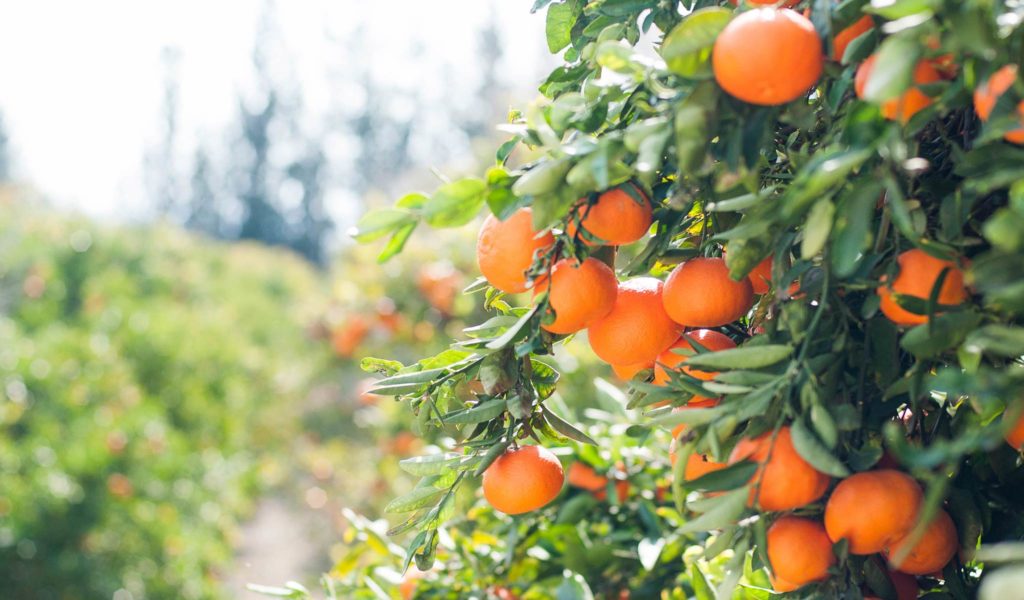Food waste is one of the most significant issues facing the world today, with the United States alone discarding more than 40 million tons of food every year. It takes up more space in US landfills than any other material and produces greenhouse gases equal to 37 million cars as well as dead-zone-inducing nitrogen as it sits in landfills, decomposing. What’s more, these figures don’t factor in the resources used within food production—such as energy (usually from non-renewable sources), water, and countless chemicals used in pesticides and fertilizers.
That said, food waste is now being recognized for its destructive impact, and individuals, businesses, and governments are beginning to address the issue. On a state level, specific legislation to tackle the problem is being implemented, with tax incentives, liability protection for donations, and food waste bans.
Most states stick to federal legislation, such as the Bill Emerson Good Samaritan Food Donation Act, or extensions of it (as all 50 states have done). However, a few states have taken things further, introducing increasingly comprehensive legislation to minimize waste and the wider issues it causes. Here, we explore those states leading the way in food waste prevention.
Arizona Food Waste Legislation
Arizona offers two relevant tax incentives. First, a deduction for restaurants that donate food to non-profits that serve free meals to those in need. This, unlike a lot of other food-waste legislation, covers prepared food and drink. Second, a tax deduction for farmers or agricultural processors who donate crops to non-profits in Arizona that use the crops for their charity work.
California Food Waste Legislation
California’s liability protection legislation covers food that is fit for human consumption regardless of packaging and labelling laws, including if the food is past the shelf-life date, so long as the person distributing it to the end recipient considers the food wholesome. This extension of protection is far greater than in other states and helps tackle the issue of poorly labeled food.
In terms of tax incentives, California offers farmers tax credits worth 15% of the qualified value of fresh produce that they donate to food banks in the state. Additionally, there is a tax credit of 50% of transportation costs for agricultural crops going to non-profits that can be claimed by those processing, distributing, or selling agricultural products in the state.
California has also introduced some of the United States’ strictest organic waste recycling laws, which required a gradual reduction in organic waste production from all business (including non-profits). This was amended from 8 cubic yards per week in 2016, to 4 cubic yards per week in 2017, to 2 cubic yards per week in 2020.
This legislation was shored up in 2016, with requirements for all property owners to subscribe to appropriate collection services as well as provide proper containers for disposing of compostable materials.

Colorado Food Waste Legislation
Colorado offers two tax incentives to cut food waste. First, a tax credit of 25% of the wholesale market price (not exceeding $5,000 annually) of agricultural crops, livestock, eggs, and dairy that is donated to hunger-relief non-profits. Second, a tax credit of 25% of the wholesale market price (not exceeding $1,000 annually) of crops and livestock donated to charities by c-corporations.
Additionally, Colorado requires property owners and managers to have on-site collection of compostable materials, which must be as easy to use as trash cans.
Connecticut Food Waste Legislation
Connecticut has introduced legislation that limits organic waste production to 52 tons/year by 2020 for all food wholesalers, distributors, manufacturers, and processors, as well as supermarkets, conference centers, and resorts.
Iowa Food Waste Legislation
Iowa offers a tax credit of 15% of the fair market value (not exceeding $5,000 annually) of any apparently wholesome food that is donated to food banks or other emergency food organizations from food producers. This is much broader in scope than other states’ tax incentives since it isn’t limited to, for example, crops or livestock.
Kentucky Food Waste Legislation
Kentucky offers farmers a tax credit of 10% of the fair market value of any edible agricultural products that they donate to a nonprofit food program in Kentucky. Edible food includes “fruits, vegetables, beef, poultry, pork, fish, and any other edible product raised or grown in Kentucky that is intended for and fit for human consumption.”
Massachusetts Food Waste Legislation
Massachusetts has an organic waste ban that covers any business (including governmental units) that generate more than one ton of food waste per week. Unlike other legislation, there are no exceptions to the ban based on a business’s proximity to a processing facility.
Missouri Food Waste Legislation
Missouri offers a tax credit of 50% of any food or cash donation (not exceeding $2,500 annually) to a local food pantry. Unlike other tax incentives, any taxpayer in Missouri is eligible. However, it does include cash donations, which may not actively drive a reduction in food waste. What’s more, since it includes any taxpayer, it’s applicable to sellable produce.
Oregon Food Waste Legislation
Oregon offers farmers a tax credit of 15% of the wholesale market price of any crops or livestock that are donated to any charity or food bank that distribute food in the state for free.
Additionally, Oregon has legislation that requires any business that “cooks, assembles, processes, serves, or sells food” to source-separate food waste and then send it to an authorized facility for processing.
South Carolina Food Waste Legislation
South Carolina offers a tax credit of $75 per deer carcass when donated by a licensed meatpacker, butcher, or processing plant to a nonprofit that distributes food to the needy, assuming no part of the deer is sold.
Vermont Food Waste Legislation
In 2012, Vermont passed food waste legislation that required any resident or business in the state to gradually reduce organic waste. This started at 104 tons/year in 2014 and aimed to ban all food scraps from landfill in the state by 2020.
Virginia Food Waste Legislation
Virginia offers farmers a tax credit of 30% of the fair market value (not exceeding $5,000 annually) of food crops donated to a nonprofit that provides food to the needy. Unlike other states, Virginia allows the recipient to sell the food to the end-user or other nonprofit without impacting the tax credit.
Next steps for state food waste legislation
Interestingly, while many states are beginning to take the lead with food waste, it’s often left to cities and urban centers to show the way. Cities such as New York, Washington DC, and Boston pioneering food waste initiatives and setting the standard for states to follow.
While state-level legislation is still intermittent there is hope, and as more people wake up to the issue and lobby for it to be tackled, food waste can be minimized at each stage of production, distribution, and consumption. With individuals, governments, and businesses working together to create real change to the organic waste disposal processes, there may be dramatic improvements in the years to come.
For information on how your business can tackle food waste, contact one of our TRUE advisors today. For more information on sustainable waste management, reduction, and recycling, subscribe to the RTS blog.












